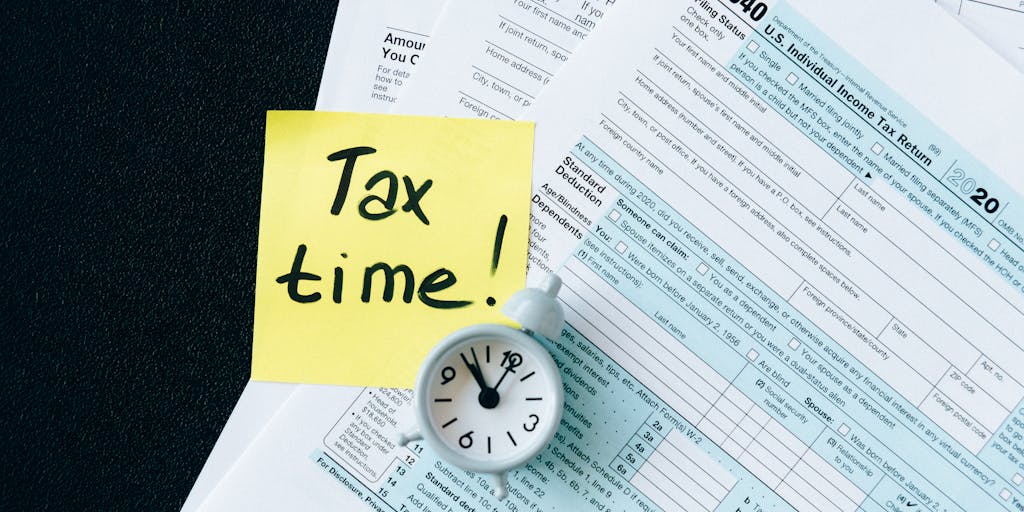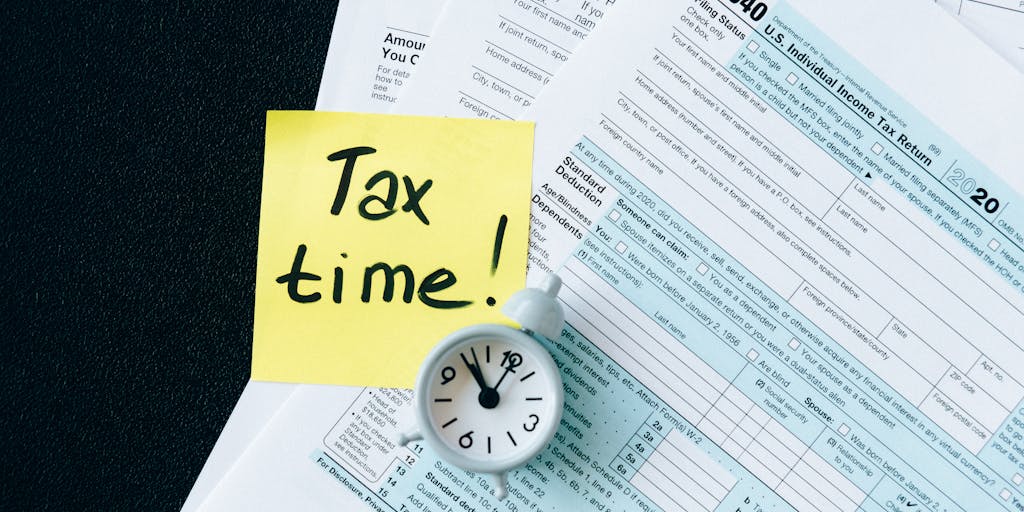Have you ever found yourself anxiously checking your bank account, only to realize that your child support payment hasn’t arrived as expected? If you’re in California, you’re not alone in this experience. Understanding the reasons behind late payments can help alleviate some of that stress and provide clarity on what steps to take next.
Common Issues In California Child Support Cases

Child support payments can be delayed for a variety of reasons, and it’s essential to know what these might be. Here are some common issues that could lead to a late payment:
- Processing Delays: Sometimes, the California Department of Child Support Services (DCSS) may experience processing delays. This can happen due to high volumes of payments or technical issues.
- Payment Method: The method you choose to make your payment can also affect timing. For instance, if you opted for a check, it may take longer to clear compared to electronic payments. You can explore various payment options to find the most efficient method.
- Bank Holidays: If a payment is scheduled around a bank holiday, it may not be processed until the next business day, causing delays.
- Changes in Employment: If the paying parent has recently changed jobs or faced a disruption in income, this can impact their ability to make timely payments.
- Address Changes: If there has been a recent change in address for either parent, it could lead to miscommunication or delays in processing payments.
It’s important to stay informed and proactive. If you suspect a delay, reaching out to the DCSS can provide you with the necessary information to understand your situation better.
Child Support In California: What Are Arrears?
When payments are missed or delayed, they can accumulate into what is known as arrears. This term refers to the amount of child support that is owed but has not been paid. In California, arrears can build up quickly, leading to significant financial obligations for the paying parent. Understanding arrears is crucial for both parents involved.
For instance, if a parent misses a payment, they may not only owe the missed amount but also face additional penalties or interest. This can create a cycle of debt that is hard to escape. If you’re facing issues with arrears, it’s wise to consult resources like California’s child support FAQ for guidance on how to manage and potentially reduce these debts.
Moreover, if you’re curious about how to navigate these challenges, consider seeking advice from legal experts. Websites like Avvo can provide insights into common legal questions surrounding child support.
In conclusion, while it can be frustrating to deal with late child support payments, understanding the underlying issues can empower you to take action. Whether it’s exploring different payment methods or addressing arrears, being informed is your best ally in ensuring that your child receives the support they need.
Common Issues Regarding Child Support
Have you ever found yourself wondering why your child support payment is late? You’re not alone. Many parents face similar frustrations, and understanding the common issues can help ease your concerns. Child support payments can be delayed for various reasons, and knowing these can empower you to take action.
One frequent issue is the method of payment. If you’re using online payment systems, technical glitches can occur. For instance, the California Child Support Disbursement Unit has experienced outages that can affect payment processing. You can check their updates on their Facebook page for real-time information.
Another common problem is changes in employment status. If the paying parent has lost their job or had a significant change in income, this can lead to delays. It’s essential to communicate openly about these changes to avoid misunderstandings.
Additionally, administrative errors can happen. Sometimes, payments may not be processed correctly due to clerical mistakes. Keeping a record of your payments and any correspondence can be beneficial in resolving these issues quickly.
Lastly, if there are disputes regarding the amount owed or changes in custody arrangements, these can also lead to delays. It’s crucial to stay informed and proactive in these situations.
When Is Child Support Considered Late? (And What to Do)

Understanding when child support is considered late can be a bit tricky, but it’s essential for both custodial and non-custodial parents. Generally, child support payments are due on a specific date set by the court or agreed upon in your child support order. If the payment is not received by that date, it is considered late.
So, what should you do if you find yourself in this situation? First, check your payment method. If you’re using an online system, ensure that the payment was processed correctly. If you suspect a technical issue, you can refer to the California Child Support Facebook page for updates.
If the payment is indeed late, it’s important to communicate with the other parent. Open dialogue can help prevent misunderstandings and foster a cooperative co-parenting relationship. If you’re the receiving parent, consider reaching out to the child support agency for assistance. They can provide guidance on how to proceed and what steps to take next.
In some cases, you may need to consider legal advice, especially if late payments become a recurring issue. Consulting with a family law attorney can help you understand your rights and options.
When is Child Support Considered Late?
Child support is officially considered late when the payment is not received by the due date specified in the court order. In California, this due date is typically set monthly, but it can vary based on individual agreements. If you’re wondering how late is too late, it’s important to note that even a day late can lead to complications.
For example, if you miss a payment, it can accumulate arrears, which may lead to additional penalties or legal actions. This is why it’s crucial to stay on top of your payments. If you’re facing difficulties, it’s better to communicate proactively rather than waiting until the payment is overdue.
Moreover, if you’re the paying parent and anticipate a delay, consider informing the other parent as soon as possible. This transparency can help maintain trust and reduce potential conflicts. If you’re struggling to make payments, resources are available to help you avoid falling into arrears. You can read more about avoiding child support arrears in this helpful article here.
In summary, understanding the timeline and potential issues surrounding child support payments can help you navigate this often complex situation with greater ease. By staying informed and proactive, you can ensure that your child’s needs are met without unnecessary stress.
What Sets the Deadline for Child Support Payments?
Understanding the timeline for child support payments can feel like navigating a maze, especially when you’re waiting for that crucial check to arrive. In California, child support payments are typically due on the first of the month, but the exact timing can vary based on the specifics of your court order. Have you ever wondered why some payments seem to arrive on time while others are delayed? This can often be attributed to the method of payment and the processing times involved.
For instance, if payments are deducted directly from the non-custodial parent’s paycheck, they may take a few days to process before reaching you. According to Los Angeles County’s Child Support Services, this processing time can sometimes lead to delays, especially if there are holidays or weekends involved. It’s essential to keep these factors in mind when tracking your payments.
What do I do When Child Support Payments are not Made When the Grace Period is Over?
So, what happens when the grace period has passed, and you still haven’t received your payment? First, take a deep breath. It’s not uncommon for payments to be delayed for various reasons, but knowing how to respond can make a significant difference. Start by checking in with the child support agency handling your case. They can provide insights into any potential issues that may be causing the delay.
If you find that the payment is indeed late, you have several options. You can file a complaint with the child support agency or even consider seeking legal advice. It’s crucial to document all communications and keep records of missed payments, as this information can be vital if you need to escalate the situation. For more detailed guidance, you might want to explore resources like LegalMatch’s article on late child support payments.
Does the Federal Government Play a Role in Enforcing Child Support Obligations?
Many parents wonder about the role of the federal government in child support enforcement. The answer is yes, the federal government does play a significant role in ensuring that child support obligations are met. Through programs like the Federal Parent Locator Service, the government helps locate non-custodial parents who may be avoiding their responsibilities. This service can be a lifeline for custodial parents who are struggling to receive payments.
Additionally, federal laws mandate that states establish child support enforcement programs, which include measures like wage garnishment and tax refund intercepts. This means that if a non-custodial parent falls behind on payments, the government can take action to recover those funds. Understanding these mechanisms can empower you as a custodial parent, giving you the knowledge to advocate for your rights. If you’re interested in learning more about common issues in California child support cases, check out Lederman Law’s insights.
Do I Need the Help of a Child Support Lawyer?
Why does it take so long for me to receive child support when it is deducted from the noncustodial parent’s paycheck?

Have you ever wondered why, despite the noncustodial parent’s paycheck being docked for child support, the funds don’t appear in your account right away? This delay can be frustrating, and understanding the process can help ease some of that frustration.
A wage assignment has been sent on my case to the noncustodial parent’s employer. When can I expect the first payment?
Once a wage assignment has been sent to the noncustodial parent’s employer, you might be eager to know when the first payment will arrive. Typically, the timeline can vary based on several factors, including the employer’s payroll schedule and the efficiency of the child support agency.
Child support payments are crucial for ensuring that children receive the financial support they need. However, there are times when these payments may be delayed, leaving parents anxious and uncertain. If you find yourself wondering, “Why is my child support payment late this week in California?” you’re not alone. Let’s explore the various factors that could contribute to this situation and what you can do about it.
PAYMENT OPTIONS

Understanding the different payment options available can help you navigate the complexities of child support. California offers several methods for making payments, each with its own set of advantages and potential pitfalls. Knowing these options can empower you to ensure timely payments and avoid unnecessary delays.
Making Payments
In California, child support payments can be made through various channels, including:
- Online Payments: The California Department of Child Support Services (DCSS) provides an online portal where you can make payments easily and securely. This method is often the fastest way to ensure your payment is processed on time.
- Mail: You can also send your payments via mail. However, this method can lead to delays, especially if there are postal service issues. Always consider sending payments via certified mail to track their delivery.
- In-Person Payments: Some local child support offices allow for in-person payments. This can be a good option if you prefer to handle things face-to-face, but be sure to check the office hours and any required documentation.
Each of these methods has its pros and cons, and it’s essential to choose the one that best fits your situation. If you’re facing a delay, it might be worth checking if your payment method is the cause.
Pay With Your Credit Card
Did you know that you can also pay your child support with a credit card? This option can be particularly useful if you find yourself short on cash but need to make a payment quickly. The process is straightforward:
- Visit the DCSS website and navigate to the payment section.
- Select the option to pay with a credit card.
- Enter your payment details and confirm the transaction.
Using a credit card can help you avoid late fees and ensure that your child receives the support they need on time. However, keep in mind that there may be processing fees associated with credit card payments, so it’s wise to check the terms before proceeding.
In conclusion, if your child support payment is late this week, consider the payment method you used and any potential delays that could have occurred. By understanding your options and staying informed, you can take proactive steps to ensure timely payments in the future. If you’re looking for more insights on managing your finances, you might find our article on the Best Digital Marketing Podcasts helpful, as it can provide tips on budgeting and financial management.
Child support payments are crucial for ensuring that children receive the financial support they need. However, there are times when these payments may be delayed, leaving parents anxious and uncertain. If you find yourself asking, “Why is my child support payment late this week in California?” you’re not alone. Let’s explore some common reasons for these delays and how you can navigate the situation.
Pay With Your Checking or Savings Account
One of the most straightforward ways to ensure your child support payments are made on time is by using your checking or savings account. This method allows for automatic withdrawals, which can help avoid late payments. However, if you notice a delay, consider the following:
- Bank Processing Times: Sometimes, banks take longer than expected to process transactions, especially if the payment is initiated close to the due date.
- Insufficient Funds: If your account lacks sufficient funds, the payment may bounce, leading to delays and potential penalties.
- Account Changes: If you’ve recently changed your bank account or switched banks, ensure that your child support payment information is updated with the California Department of Child Support Services.
To avoid these issues, regularly check your account balance and set reminders for payment dates. This proactive approach can save you from unnecessary stress.
Pay With Cash
Paying child support with cash can be convenient, but it also comes with its own set of challenges. If you choose this method, you might wonder why your payment is late. Here are some factors to consider:
- Payment Locations: Ensure you are aware of the authorized locations where you can make cash payments. If you go to an unapproved location, your payment may not be processed correctly.
- Receipt Documentation: Always ask for a receipt when making cash payments. Without proof of payment, you may face difficulties if there are disputes about whether the payment was made.
- Processing Delays: Even if you pay in cash, there may be delays in processing the payment through the child support system.
To mitigate these issues, consider switching to a more reliable payment method, such as direct deposit, which can provide peace of mind and ensure timely payments.
Mail a Check or Money Order
Mailing a check or money order is another common method for making child support payments. However, this method can lead to delays for several reasons:
- Mailing Times: Depending on your location, mail delivery can take longer than expected. If you send your payment close to the due date, it may not arrive on time.
- Processing Delays: Once the payment arrives, it may take additional time for the child support agency to process it, especially if there are a high volume of payments being handled.
- Incorrect Information: Ensure that your check or money order is filled out correctly, including the correct account number and payment amount. Errors can lead to further delays.
To avoid these issues, consider mailing your payment well in advance of the due date. This way, you can account for any potential delays in the postal system.
In conclusion, understanding the various payment methods and their potential pitfalls can help you navigate the complexities of child support payments in California. If you continue to experience issues, it may be beneficial to reach out to the California Department of Child Support Services for assistance. Remember, staying informed and proactive can make a significant difference in ensuring your child receives the support they need.
Child support payments are crucial for ensuring that children receive the financial support they need. However, it can be frustrating when these payments are delayed. If you find yourself wondering, “Why is my child support payment late this week in California?” you’re not alone. Let’s explore some common reasons for these delays and what you can do about them.
Receiving Payments
Understanding how child support payments are processed can help clarify why you might experience a delay. In California, child support payments can be received in a couple of different ways, each with its own potential for hiccups.
By Direct Deposit
Many parents prefer receiving their child support payments via direct deposit. This method is generally reliable and efficient, but it’s not without its issues. Have you ever experienced a delay in your bank transactions? Sometimes, banks may take longer than expected to process deposits, especially if there are holidays or weekends involved. Additionally, if there are any discrepancies in your bank account information, it could lead to a delay in receiving your funds.
It’s also worth noting that the California Department of Child Support Services (DCSS) processes payments on specific days. If your payment was scheduled for a day when the office was closed, it might not be processed until the next business day. Keeping track of these schedules can help you anticipate when to expect your payment.
With an Electronic Payment Card (EPC)
Another common method for receiving child support payments is through an Electronic Payment Card (EPC). This card functions like a debit card, allowing you to access your funds directly. However, there can be delays associated with this method as well. For instance, if there are issues with the card itself—like it being lost or stolen—you may not receive your payment on time.
Moreover, if you’ve recently changed your address or personal information, it’s essential to ensure that the DCSS has your updated details. Failure to do so can lead to delays in processing your payments. Have you checked your account information recently? It might be a good idea to verify that everything is up to date.
In conclusion, while delays in child support payments can be frustrating, understanding the reasons behind them can help you navigate the situation more effectively. Whether you receive payments by direct deposit or through an EPC, staying informed and proactive can make a significant difference. If you continue to experience issues, consider reaching out to the DCSS for assistance or to clarify any concerns you may have.
By Check
Have you ever found yourself anxiously checking your mailbox, hoping for that child support check to arrive? It can be frustrating when payments are late, especially when you rely on them for essential expenses. In California, child support payments can be made through various methods, including checks. But what happens when that check doesn’t show up on time? Let’s explore some common reasons for delays and what you can do about it.
One of the most frequent causes of late payments by check is the postal service. Delays in mail delivery can occur for numerous reasons, such as weather disruptions or increased mail volume. If you’re expecting a check, it’s wise to consider these factors. Have you ever experienced a delay due to a holiday season or a natural event? It’s not uncommon!
Another reason could be related to the issuing party. If the payer has encountered financial difficulties or has not submitted the payment on time, this could lead to delays. It’s essential to maintain open communication with the payer to understand their situation. Have you thought about discussing payment methods that might be more reliable, like direct deposit?
In some cases, administrative errors can also play a role. If there’s a mistake in the payment processing, it could lead to delays. Keeping track of your payment history and any correspondence with the California Child Support Services can help you identify any issues quickly.
Ultimately, if you find that your check is consistently late, it might be time to consider alternative payment methods. Direct deposit is often faster and more reliable. Have you looked into setting that up? It could save you a lot of stress in the long run!
California Child Support Services’s Post
When it comes to understanding child support payments in California, the California Child Support Services (CSS) plays a crucial role. They provide resources and support to both custodial and non-custodial parents. If you’re facing issues with late payments, it’s beneficial to reach out to them for assistance.
CSS offers a variety of services, including payment tracking and enforcement. They can help you understand your rights and responsibilities regarding child support. Have you ever visited their website or contacted them for help? They can provide valuable insights and guidance tailored to your situation.
Moreover, CSS regularly updates their policies and procedures, which can affect payment timelines. Staying informed about these changes can help you anticipate any potential delays. Have you checked their latest updates or announcements? It’s a good practice to stay in the loop!
California Child Support Services
Understanding the workings of California Child Support Services can empower you as a parent. They are dedicated to ensuring that children receive the financial support they need. If you’re experiencing delays, it’s essential to know that you’re not alone. Many parents face similar challenges, and there are resources available to help you navigate these waters.
For instance, CSS provides an online portal where you can check your payment status and history. This can be a great tool to keep track of when payments are due and when they have been made. Have you utilized this feature? It can save you time and provide peace of mind.
Additionally, if you’re considering a change in your payment method, CSS can assist you with that process. Whether you’re looking to switch to direct deposit or need help with any other payment options, they are there to support you. Have you thought about how a different payment method could ease your concerns about late payments?
In conclusion, while late child support payments can be stressful, understanding the reasons behind them and knowing where to seek help can make a significant difference. By staying informed and proactive, you can ensure that your child receives the support they need without unnecessary delays.
Customer Relations
When it comes to child support payments, communication is key. If your payment is late, it can be frustrating and stressful. You might be wondering, “What happened? Is there a problem with my case?” Understanding the customer relations aspect of child support services in California can help you navigate these concerns more effectively.
First, it’s important to know that delays can occur for various reasons. Sometimes, it could be due to processing issues, changes in income, or even banking errors. If you find yourself in this situation, reaching out to the California Child Support Services (CSS) can provide clarity. They have dedicated customer service representatives who can assist you in understanding the status of your payments and any potential issues that may have arisen.
Moreover, maintaining a good relationship with the child support agency can make a significant difference. Being proactive in your communication can help resolve issues more quickly. If you have questions or concerns, don’t hesitate to call or visit your local child support office. They are there to help you, and often, a simple conversation can clear up misunderstandings.
Additionally, consider keeping records of all communications and payments. This can be invaluable if disputes arise. By documenting everything, you can provide evidence of your compliance and any issues that may have occurred, which can help in resolving disputes more efficiently.
Tribal Relations
For families with Native American heritage, navigating child support can involve unique considerations. You might be asking, “How does my child’s tribal affiliation affect child support?” Understanding the intersection of tribal relations and child support in California is crucial for ensuring that your child’s needs are met.
My child is (partially) Native American. Can California Child Support Services help me get and/or enforce a legal order for support?
If your child is partially Native American, California Child Support Services can still assist you in obtaining and enforcing a legal order for support. However, it’s essential to recognize that tribal laws may also come into play. Many tribes have their own child support enforcement systems, which can sometimes complicate matters.
In California, the CSS works collaboratively with tribal agencies to ensure that child support orders are enforced effectively. This means that if you are facing challenges in receiving support, the agency can help you navigate both state and tribal systems. It’s a good idea to reach out to your tribe’s child support office as well, as they may have specific resources or programs available to assist you.
Moreover, understanding your rights and the resources available to you can empower you in this process. If you’re unsure where to start, consider seeking legal advice or assistance from organizations that specialize in Native American family law. They can provide guidance tailored to your unique situation, ensuring that you and your child receive the support you need.
In conclusion, whether you’re dealing with customer relations or tribal relations regarding child support, open communication and understanding your rights are vital. By staying informed and proactive, you can navigate these challenges more effectively, ensuring that your child’s needs are prioritized.
California Child Support Services helped me open a case against my child’s parent (who lives on tribal lands). Why are they having trouble serving the documents and/or enforcing on my child’s behalf?
When you find yourself in a situation where California Child Support Services (CSS) is struggling to serve documents or enforce child support against a parent living on tribal lands, it can be frustrating and confusing. You might wonder, “Why is this happening?” The answer often lies in the complex interplay between state and tribal laws.
Tribal sovereignty means that tribes have the authority to govern themselves and make their own laws. This can create challenges for state agencies like CSS when trying to enforce child support orders. For instance, if the other parent resides on a reservation, CSS may need to follow specific protocols to serve documents, which can be different from standard procedures used in non-tribal areas.
Additionally, some tribes have their own child support enforcement programs, which can complicate matters further. If the other parent is not cooperating, it may require additional legal steps to ensure that your child’s needs are met. It’s essential to stay in close contact with your caseworker at CSS, as they can provide updates and guidance on how to navigate these challenges.
Have you considered reaching out to a legal expert who specializes in tribal law? They can offer insights into your specific situation and help you understand your rights and options. Remember, you’re not alone in this process, and there are resources available to support you.
Military and Veteran
For military families, navigating child support can come with its own unique set of challenges. If you’re a service member or a veteran, you might be wondering how your military status affects your child support obligations. The good news is that there are protections in place to ensure that your rights are upheld while also ensuring that your child’s needs are met.
Who should I contact about my VA benefits?
If you’re looking to understand your VA benefits better, it’s crucial to know who to reach out to. The Department of Veterans Affairs (VA) has a variety of resources available to assist you. You can start by visiting the official VA website, which offers comprehensive information on benefits, eligibility, and how to apply.
Additionally, local VA offices can provide personalized assistance. They can help you navigate the often complex landscape of benefits, whether it’s for education, healthcare, or housing. If you’re unsure where to find your nearest office, a quick search online can direct you to the right place.
It’s also worth considering connecting with veteran service organizations (VSOs). These organizations are dedicated to helping veterans and their families access the benefits they deserve. They can offer guidance, support, and advocacy, making the process smoother for you.
In summary, whether you’re dealing with child support issues or seeking information about VA benefits, remember that there are resources and people ready to help you. Don’t hesitate to reach out and ask questions; it’s the best way to ensure that you and your family receive the support you need.
Child support is a crucial aspect of ensuring that children receive the financial support they need from both parents. However, there are times when payments may be delayed, leading to stress and uncertainty. If you find yourself asking, “Why is my child support payment late this week in California?” you’re not alone. Let’s explore some common reasons for these delays and what you can do about them.
Child Support Topics
Understanding child support can be complex, especially when payments are inconsistent. Here are some key topics to consider:
- Payment Processing Delays: Sometimes, the processing of payments can take longer than expected. This could be due to bank holidays, weekends, or administrative delays within the child support agency.
- Changes in Employment: If the paying parent has recently changed jobs or experienced a reduction in income, this can affect their ability to make timely payments. It’s essential to communicate any changes in financial circumstances to the child support agency.
- Payment Method Issues: If payments are made through direct deposit or electronic transfer, technical issues can arise. Ensure that your banking information is up to date and that there are no issues with your account.
- Legal Modifications: If there have been recent changes to the child support order, such as modifications due to changes in custody or income, this can lead to temporary delays as the new terms are processed.
- Interstate Issues: If the paying parent lives in a different state, there may be additional complications in processing payments, especially if they are subject to different state laws.
Legal Advice on Child Support
When facing delays in child support payments, seeking legal advice can be beneficial. A family law attorney can help you understand your rights and obligations, as well as the steps you can take to address the situation. They can assist in:
- Filing a Motion: If payments are consistently late, you may need to file a motion with the court to enforce the child support order.
- Negotiating Modifications: If the paying parent is experiencing financial difficulties, a legal professional can help negotiate a temporary modification to the support amount.
- Understanding Enforcement Options: There are various enforcement options available, including wage garnishment and tax refund intercepts, which can help ensure that payments are made on time.
It’s important to remember that you are not alone in this process. Many parents face similar challenges, and there are resources available to help you navigate these issues. For more insights on related topics, you might find it helpful to read about Best YouTube Marketing Agencies or Best Instagram Advertising Agencies to understand how marketing can play a role in your financial planning.
Recommended articles about Child Support
To further educate yourself on child support and related issues, consider exploring these articles:
- Best Pinterest Marketing Agencies – Learn how effective marketing strategies can help you manage your finances better.
- Best Amazon Marketing Agencies – Discover how to leverage online platforms for additional income, which can ease financial burdens.
In conclusion, while late child support payments can be frustrating, understanding the potential reasons behind the delays can empower you to take action. Whether it’s seeking legal advice or exploring additional income opportunities, you have options. Remember, the well-being of your child is the priority, and taking proactive steps can help ensure they receive the support they need.
What is child support?
Child support is a legal obligation that one parent has to provide financial assistance to the other parent for the upbringing of their child. It’s designed to ensure that children receive the financial support they need, regardless of the parents’ relationship status. In California, child support is determined based on several factors, including the income of both parents, the amount of time each parent spends with the child, and the needs of the child.
Imagine you’re a parent juggling work, bills, and the daily demands of raising a child. Child support can be a crucial lifeline, helping to cover essential expenses like food, clothing, and education. It’s not just about money; it’s about ensuring that children have a stable environment to thrive in. If you’re wondering why your payment is late this week, it’s important to understand the system behind child support and what might be causing the delay.
What can Child Support Services do to help me?
Child Support Services (CSS) in California can be a valuable resource for parents navigating the complexities of child support. They offer a range of services designed to assist both custodial and non-custodial parents. Here are some key ways they can help:
- Establishing paternity: If paternity is in question, CSS can help establish legal fatherhood, which is essential for child support obligations.
- Setting up child support orders: They can assist in calculating the appropriate amount of support based on state guidelines and help you obtain a court order.
- Collecting payments: CSS can facilitate the collection of payments, ensuring that they are sent directly to the custodial parent.
- Modifying support orders: If your financial situation changes, CSS can help you request a modification of the support order to reflect your current circumstances.
- Enforcing support orders: If payments are late or missed, CSS has the authority to take enforcement actions, such as wage garnishment or intercepting tax refunds.
These services can alleviate some of the stress associated with child support, allowing you to focus more on your child’s well-being. However, it’s essential to stay informed about your case and communicate with CSS if you encounter any issues, such as late payments.
What CAN’T Child Support Services do for me?
While Child Support Services can be incredibly helpful, it’s important to recognize their limitations. Understanding what they can’t do can save you time and frustration. Here are a few things CSS cannot assist with:
- Resolve custody disputes: CSS does not handle custody or visitation issues. These matters must be addressed through family court.
- Provide legal representation: CSS cannot represent you in court or provide legal advice. If you need legal assistance, you may want to consult a family law attorney.
- Change the terms of a court order without a hearing: Any modifications to child support must go through the court system, and CSS cannot unilaterally change the terms.
- Address personal grievances: CSS is focused on the financial aspects of child support and cannot mediate personal conflicts between parents.
Being aware of these limitations can help you set realistic expectations and seek the appropriate resources when needed. If you find yourself facing challenges with your child support payments, consider reaching out to a legal professional who can provide guidance tailored to your situation.
Child support can sometimes feel like a complex web of rules and regulations, especially when payments are delayed. If you’re wondering why your child support payment is late this week in California, you’re not alone. Let’s explore some of the factors that could be at play.
How is the amount of child support payments decided?
Determining the amount of child support can seem daunting, but it’s primarily based on a formula that considers several key factors. In California, the state uses a guideline formula that takes into account:
- Income of both parents: The total income of both parents is assessed to ensure that the child’s needs are met.
- Time spent with each parent: The amount of time the child spends with each parent can influence the support amount, as more time may mean more expenses.
- Other children: If either parent has other children to support, this can also affect the calculation.
It’s important to note that these calculations can be adjusted based on special circumstances, such as medical expenses or educational needs. If you feel that your payment amount is incorrect, it might be worth consulting with a legal expert to review your situation. You can find resources on child support calculations through local family law services.
Do parents have to provide health insurance for children?
Health insurance is a crucial aspect of child support that often gets overlooked. In California, both parents are generally required to provide health insurance for their children if it is available at a reasonable cost. This requirement is typically included in the child support order. But what does “reasonable cost” mean?
Health insurance is considered reasonable if it does not exceed a certain percentage of the parent’s income. If one parent has access to employer-sponsored health insurance, they may be obligated to enroll the child in that plan. This can significantly impact the overall child support payment, as the cost of insurance is factored into the support calculations.
Have you ever had to navigate the complexities of health insurance for your child? It can be a challenge, but understanding your obligations can help you avoid potential disputes. If you’re unsure about your responsibilities, it might be helpful to consult with a family law attorney who can provide clarity.
How long do I have to pay child support?
The duration of child support payments can vary widely based on individual circumstances. In California, child support typically continues until the child turns 18, or until they graduate from high school, whichever comes later. However, there are exceptions:
- Special needs children: If a child has special needs, support may continue beyond the age of 18.
- Modification of orders: If there are significant changes in circumstances, such as job loss or a change in income, parents can request a modification of the support order.
It’s essential to stay informed about your obligations and rights regarding child support. If you’re facing challenges or uncertainties, reaching out to a legal professional can provide you with the guidance you need. Remember, understanding the timeline and conditions of your child support payments can help you plan better for the future.
Is my child support case information open to the public?
When it comes to child support cases, many parents wonder about the privacy of their information. You might be asking yourself, “Can anyone just look up my case?” The answer is a bit nuanced. In California, child support case information is generally not open to the public in the same way that criminal records are. However, certain details can be accessed by specific parties involved in the case, such as the parents and their legal representatives.
For instance, if you’re involved in a child support case, you can access your case information through the California Department of Child Support Services (DCSS). This includes payment history, case status, and other relevant details. But if you’re concerned about your privacy, it’s important to know that sensitive information, like your address or financial details, is typically kept confidential.
That said, there are exceptions. For example, if a case goes to court, some information may become part of the public record. This can be concerning, especially if you’re dealing with a contentious situation. If you have specific worries about privacy, it might be worth consulting with a legal expert who can guide you on how to protect your information.
How do I open a child support case?
Opening a child support case can feel overwhelming, but it’s a crucial step in ensuring that your child receives the financial support they need. You might be wondering, “Where do I even start?” The process in California is designed to be straightforward, and here’s how you can navigate it.
First, you’ll need to gather some essential information, such as your child’s birth certificate, your identification, and any existing court orders related to custody or visitation. Once you have these documents, you can initiate the process by contacting your local child support agency. You can find your local office through the California Child Support website.
After you reach out, you’ll fill out an application form, which can often be done online. This form will ask for details about your situation, including the other parent’s information. Once submitted, the agency will review your case and may schedule a meeting to discuss the next steps. It’s important to stay engaged throughout this process, as communication with the agency can help expedite your case.
Remember, opening a child support case is not just about financial support; it’s also about ensuring that both parents are involved in the child’s life. If you have any concerns or questions, don’t hesitate to ask for help from professionals who specialize in family law.
I’m afraid my ex will hurt me or the kids if I ask for your help. What should I do?
Your safety and the safety of your children should always come first. If you’re feeling threatened or fearful about reaching out for help regarding child support, it’s crucial to take those feelings seriously. You might be thinking, “What if my ex reacts negatively?” It’s a valid concern, and there are steps you can take to protect yourself.
First, consider reaching out to a trusted friend or family member who can provide support. You don’t have to go through this alone. Additionally, many organizations offer resources for individuals in your situation, including legal aid and domestic violence shelters. They can provide guidance on how to navigate your child support case while ensuring your safety.
If you feel that your situation is urgent, don’t hesitate to contact local law enforcement or a domestic violence hotline. They can help you create a safety plan and provide immediate assistance if needed. Remember, it’s okay to prioritize your well-being and that of your children. Seeking help is a brave step, and there are people and resources available to support you through this challenging time.
What does “private child support case” mean?
When we talk about a “private child support case,” we’re referring to situations where child support arrangements are made outside of the court system. This typically means that the parents have agreed on the terms of support without involving a judge or the Child Support Services (CSS) agency. It’s a more informal approach, often based on mutual understanding and trust.
However, while this can seem like a simpler route, it can also lead to complications. For instance, if one parent fails to make a payment, the other parent may find it challenging to enforce the agreement. This is where the lack of legal backing can create issues. Have you ever found yourself wondering how to navigate these informal agreements? It’s essential to understand that while they can work, they also come with risks.
If I have a private case and need help, can I use Child Support Services?
Absolutely! Even if you have a private child support case, you can still seek assistance from Child Support Services. They can help you establish a formal child support order, which can provide a more secure framework for payments. This is particularly useful if you’re facing challenges with receiving payments on time.
For example, if you’re experiencing delays in payments, CSS can step in to help enforce the agreement. They have the resources to track down payments and ensure that obligations are met. It’s like having a safety net when things get a bit rocky. Have you considered reaching out to them for support? It might just be the solution you need to alleviate some stress.
If I have a private case and need to set up payments, what should I do?
Setting up payments in a private child support case can be straightforward, but it requires clear communication and documentation. First, you should have a detailed agreement outlining the payment amount, frequency, and method. This could be through direct bank transfers, checks, or even digital payment platforms.
Once you have your agreement in place, it’s wise to keep records of all transactions. This not only helps in tracking payments but also serves as evidence if disputes arise later. If you find that setting up payments is becoming complicated, consider consulting with a legal professional who specializes in family law. They can provide guidance tailored to your situation.
Additionally, if you’re looking for ways to streamline communication or manage your case more effectively, you might want to explore resources like Best Live Chat for Lawyer Websites. These tools can help facilitate discussions and keep everything organized.
Child support payments are crucial for ensuring that children receive the financial support they need from both parents. However, there are times when these payments may be delayed, leading to confusion and concern. If you find yourself asking, “Why is my child support payment late this week?” you’re not alone. Let’s explore some common scenarios that can affect child support payments, particularly in California.
What if one of the parents moves out of state, or lives in another country?
When a parent relocates, whether to another state or even another country, it can complicate child support arrangements. You might wonder how this affects the payment schedule and the enforcement of support orders. In California, child support orders are generally enforceable across state lines due to the Uniform Interstate Family Support Act (UIFSA). This means that if the non-custodial parent moves, the child support order remains valid, but the process of collecting payments may change.
If the parent who is obligated to pay support moves out of state, they must still comply with the California court’s order. However, if they live in another country, the situation can become more complex. International child support enforcement can involve treaties and agreements between countries, which may delay payments. It’s essential to stay informed about your rights and options in these situations. You might want to consult with a family law attorney who specializes in interstate or international child support issues.
If I live in another country, how can I contact California Child Support?
Living abroad doesn’t mean you have to lose touch with the California Child Support Services (CSS). If you have questions or need assistance regarding your child support payments, you can still reach out to them. The California CSS has resources available for parents living outside the U.S. You can contact them via phone or email, and they often have specific guidelines for international inquiries.
Additionally, consider using online resources. The California Department of Child Support Services website provides a wealth of information, including how to manage your case from abroad. You can also find contact information for local child support agencies that may assist you in your specific situation. Remember, staying proactive in communication can help prevent misunderstandings and delays in payments.
If either parent loses a job, or starts making more money, will the child support payment automatically change?
Child support payments are not automatically adjusted when a parent’s financial situation changes. If a parent loses their job, they may find it challenging to meet their support obligations, leading to potential late payments. Conversely, if a parent receives a raise or starts earning significantly more, the other parent might feel that the support amount should be increased. However, any changes to child support must go through the court system.
In California, either parent can request a modification of the child support order if there is a significant change in circumstances. This could include job loss, a substantial increase in income, or changes in the needs of the child. It’s important to document any changes and file the necessary paperwork with the court to ensure that the child support order reflects the current financial situation. Consulting with a family law attorney can provide clarity on how to navigate this process effectively.
Ultimately, understanding the nuances of child support can help you manage expectations and ensure that your child’s needs are met. If you’re facing challenges with payments, don’t hesitate to seek help and explore your options.
What happens if the parent ordered to pay child support has the money but still won’t pay?
It can be incredibly frustrating when you know the other parent has the means to pay child support but chooses not to. You might be wondering, “What can I do about this?” In California, the law takes child support obligations seriously, and there are several steps you can take if payments are delayed despite the payer’s financial capability.
First, it’s essential to understand that child support is a legal obligation. If the parent ordered to pay has the funds but refuses to do so, they may face legal consequences. You can file a motion with the court to enforce the child support order. This could lead to wage garnishment, where the court orders the employer to deduct the support amount directly from the payer’s paycheck.
Additionally, the court may impose penalties, including fines or even jail time for willful non-payment. It’s also worth noting that California has a system in place to track child support payments, which can help in documenting the non-compliance. If you find yourself in this situation, consulting with a family law attorney can provide you with tailored advice and support.
If I receive CalWORKS or KinGAP (government cash assistance/welfare), does this affect how much child support I can receive?
Receiving government assistance like CalWORKS or KinGAP can indeed influence your child support situation. You might be asking, “Will my child support be reduced because I’m getting help?” The answer is nuanced. In California, if you are receiving these benefits, the state may have a claim to some of the child support payments to reimburse the assistance provided.
For instance, if you receive CalWORKS, the state may take a portion of your child support payments to cover the costs of the assistance you received. This is known as “assignment of support rights.” However, it’s crucial to understand that this doesn’t mean you won’t receive any support; it just means that the state may take a part of it to offset the assistance costs.
On the other hand, if you are receiving KinGAP, the rules can be slightly different. KinGAP is designed to support children in foster care placements, and the child support payments may not be assigned to the state in the same way. It’s always a good idea to check with your caseworker or a legal expert to understand how these benefits interact with your child support payments.
The title company says there is a lien on my house due to unpaid child support. What is this?
Discovering that there’s a lien on your house because of unpaid child support can be alarming. You might wonder, “What does this mean for my property?” A lien is a legal claim against your property, which can occur when child support payments are not made. In California, if a parent falls behind on child support, the state can place a lien on their property to secure the debt.
This means that if you try to sell or refinance your home, the lien must be satisfied first. Essentially, the state is ensuring that it can collect the owed child support before you can access the equity in your home. It’s a serious matter, and it’s important to address it promptly.
If you find yourself in this situation, you should consider reaching out to a family law attorney who can help you navigate the complexities of child support liens. They can assist you in understanding your options, whether it’s negotiating a payment plan or contesting the lien if there are valid reasons to do so.
What happens when a title company discovers a lien?
Imagine you’re in the exciting process of buying a new home, and everything seems to be going smoothly. Then, the title company uncovers a lien against the property. What does this mean for you? A lien is essentially a legal claim against a property, often due to unpaid debts, such as child support. When a title company discovers a lien, it can halt the closing process until the issue is resolved.
Typically, the title company will notify the parties involved, including the buyer, seller, and their respective agents. They will provide details about the lien, including the amount owed and the entity that holds the lien. This discovery can lead to several outcomes:
- Negotiation: The seller may need to negotiate with the lien holder to settle the debt before the sale can proceed.
- Escrow Holdback: Sometimes, funds may be held in escrow to ensure the lien is paid off at closing.
- Title Insurance: The buyer may need to purchase title insurance to protect against future claims related to the lien.
Understanding the implications of a lien is crucial. It can affect not only the closing timeline but also your financial obligations moving forward. If you find yourself in this situation, it’s essential to communicate openly with your title company and seek legal advice if necessary.
If a child support lien or abstract of judgment exists, who do I contact and what information is needed?
Finding out that a child support lien or abstract of judgment exists can be daunting. You might wonder, “Who do I contact to resolve this?” The first step is to reach out to the local child support agency in your area. In California, this agency is typically the Department of Child Support Services (DCSS). They can provide you with specific details about the lien, including the amount owed and the reason for the lien.
When you contact them, be prepared to provide:
- Your full name and contact information.
- The name of the other parent involved in the child support case.
- Your case number, if available.
- Any relevant documentation related to the lien.
It’s also wise to keep a record of all communications. This can help you track the progress of your case and ensure that you have all necessary information at your fingertips. Remember, resolving a lien can take time, so patience and persistence are key.
How can a title company avoid delay at the close of escrow when the client has a Child Support Judgment Lien?
As a title company, you want to ensure a smooth closing process for your clients, especially when a child support judgment lien is involved. So, how can you avoid delays? First, proactive communication is essential. Inform your clients early in the process about the potential for liens and encourage them to check for any existing judgments against them.
Here are some strategies to help avoid delays:
- Conduct Thorough Title Searches: Before closing, perform comprehensive title searches to identify any liens or judgments. This can help you address issues before they become roadblocks.
- Educate Clients: Provide clients with information about child support liens and the implications they may have on the closing process. This can help them understand the importance of resolving any outstanding issues.
- Work with Legal Experts: Collaborate with attorneys who specialize in family law or child support issues. They can provide guidance on how to navigate the complexities of liens and judgments.
By taking these steps, title companies can help ensure that the closing process remains on track, even in the face of potential complications. Remember, the goal is to create a seamless experience for your clients, allowing them to focus on their new home rather than legal hurdles.
If I have a property lien recorded and I am current on my child support and only owe future support, what process is followed?
It’s understandable to feel anxious about the implications of a property lien, especially when it comes to child support. If you’re current on your payments and only owe future support, the process is generally straightforward. First, it’s important to recognize that a lien is a legal claim against your property, which can be a source of concern if you’re looking to sell or refinance.
To address this, you would typically need to contact the local child support agency that placed the lien. They can provide you with the necessary steps to have the lien released or modified. This often involves demonstrating that you are up to date with your payments and that you only owe future support. You may need to fill out specific forms or provide documentation to prove your current status.
It’s also wise to keep records of your payments and any correspondence with the child support agency. This documentation can be crucial if any disputes arise. Remember, communication is key; don’t hesitate to reach out to the agency for clarity on the process.
Have you ever faced a similar situation? Sharing experiences can often shed light on the nuances of navigating child support issues.
If I am just refinancing my property and not taking any money (equity) out, will Child Support Services subordinate their lien in favor of the new mortgage?
Refinancing your property can be a smart financial move, but it raises important questions when a child support lien is involved. If you’re refinancing without pulling out equity, you might wonder if Child Support Services will subordinate their lien to accommodate your new mortgage. The answer is often yes, but it’s not automatic.
Subordination means that the child support lien will be placed behind the new mortgage in terms of priority. To initiate this process, you’ll need to contact the child support agency and request subordination. They will likely require documentation from your lender and may need to review your payment history to ensure you are compliant with your child support obligations.
It’s essential to act proactively. Delaying this process could complicate your refinancing efforts. Have you thought about how this might impact your overall financial strategy? Understanding the implications can help you make informed decisions.
What is the State Disbursement Unit (SDU)?
The State Disbursement Unit (SDU) plays a crucial role in the child support system in California. But what exactly does it do? Essentially, the SDU is responsible for processing and distributing child support payments. This centralized system ensures that payments are tracked and delivered efficiently, which is vital for both custodial and non-custodial parents.
When a child support payment is made, it goes through the SDU, which then disburses the funds to the receiving parent. This process helps maintain accurate records and provides a clear trail of payments, which can be beneficial in case of disputes. The SDU also handles the collection of payments, ensuring that they are made on time and in the correct amounts.
For parents, understanding the role of the SDU can alleviate concerns about payment delays. If you ever find yourself wondering why a payment is late, checking in with the SDU can provide clarity. Have you ever had to navigate the complexities of child support payments? Knowing how the SDU operates can empower you to manage your situation more effectively.
Child support payments are crucial for ensuring that children receive the financial support they need. However, delays can happen, leaving many parents wondering about the reasons behind a late payment. If you find yourself asking, “Why is my child support payment late this week in California?” you’re not alone. Let’s explore some common reasons for these delays and what you can do about them.
Why do payments have to go through the SDU?
The State Disbursement Unit (SDU) plays a vital role in the child support payment process in California. You might be curious about why all payments must go through this centralized system. The primary reason is to ensure accountability and transparency in the distribution of funds. By routing payments through the SDU, the state can track transactions, verify that payments are made on time, and ensure that the correct amounts are disbursed to the right recipients.
Moreover, using the SDU helps to streamline the process for both custodial and non-custodial parents. It reduces the chances of errors that can occur when payments are made directly between parents. For instance, if a payment is missed or misallocated, the SDU can provide records to clarify the situation. This system is designed to protect the interests of children and ensure that they receive the support they need consistently.
Do I have to register on the SDU website?
If you’re wondering whether you need to register on the SDU website, the answer is yes, especially if you want to manage your payments effectively. Registration allows you to access important information about your child support case, including payment history and upcoming payment schedules. It also provides a platform for you to update your contact information and receive notifications about your payments.
Many parents find that having access to this information helps alleviate some of the stress associated with managing child support. You can easily check if a payment has been processed or if there are any issues that need to be addressed. This proactive approach can save you time and help you stay informed about your obligations and rights.
How do I register with the State Disbursement Unit?
Registering with the State Disbursement Unit is a straightforward process. To get started, you’ll need to visit the SDU website. Here’s a simple step-by-step guide to help you through the registration:
- Go to the SDU website and look for the registration section.
- Provide your personal information, including your name, address, and case number.
- Set up a username and password for your account.
- Follow the prompts to verify your identity, which may include answering security questions.
- Once registered, you can log in to access your account and manage your child support payments.
By registering, you not only gain access to your payment information but also empower yourself to take control of your child support situation. If you encounter any issues during registration, don’t hesitate to reach out to the SDU customer service for assistance.
In conclusion, understanding the role of the SDU and the registration process can significantly ease the burden of managing child support payments. If you’re facing delays, consider checking your SDU account for updates or contacting them directly for clarification. Remember, staying informed is key to ensuring that your child receives the support they need.
How do I make a payment on the State Disbursement Unit website?
If you’re wondering how to make a child support payment online, the State Disbursement Unit (SDU) website is your go-to resource. It’s designed to streamline the payment process, making it easier for you to fulfill your obligations. Have you ever found yourself frustrated with late payments? Understanding the online payment process can help alleviate some of that stress.
To get started, visit the State Disbursement Unit website. Here, you’ll find a user-friendly interface that guides you through the payment steps. You’ll need to create an account if you haven’t already, which involves providing your personal information and your case number. Once logged in, you can choose to make a one-time payment or set up recurring payments, which can be a lifesaver for budgeting.
It’s important to note that payments made through the SDU are typically processed within a few days, but it’s wise to check the processing times to avoid any surprises. If you’re ever in doubt, the website also offers a customer service section where you can get answers to your questions. Have you considered setting up automatic payments? This can help ensure that your payments are always on time, reducing the risk of late fees or penalties.
My employer takes my child support payment out of my paycheck. Do I need to do anything?
When your employer is responsible for withholding child support directly from your paycheck, it can feel like a weight off your shoulders. But do you need to take any additional steps? The short answer is: usually not. Your employer is required to send those payments directly to the State Disbursement Unit, which means you can focus on your job and your family without worrying about making those payments yourself.
However, it’s crucial to keep an eye on your pay stubs. Are the correct amounts being withheld? If you notice discrepancies, it’s important to address them immediately with your HR department. Sometimes, changes in your income or employment status can affect the amount withheld, so staying informed is key. Additionally, if you ever change jobs, make sure your new employer is aware of the child support withholding order.
Have you thought about how this system impacts your overall financial planning? Knowing that a portion of your paycheck is automatically allocated can help you budget more effectively. If you have questions about how much is being withheld or how to adjust it, don’t hesitate to reach out to your local child support agency for guidance.
My payments do not involve withholding from my paychecks. What are my payment options?
If your child support payments aren’t automatically deducted from your paycheck, you might be wondering what your options are. It’s essential to stay proactive in managing these payments to avoid any late fees or legal issues. Have you explored the various methods available to you?
One of the most common methods is to make payments directly through the State Disbursement Unit. You can do this online, as mentioned earlier, or you can opt for other methods such as mailing a check or money order. Just remember to include your case number on any correspondence to ensure your payment is properly credited.
Another option is to use electronic payment services, which can be convenient if you prefer to handle transactions digitally. Some people find that setting up reminders on their phones helps them stay on track with payments. Have you considered using a budgeting app to help manage your finances? This can be particularly useful if you have multiple financial obligations.
Ultimately, the key is to choose a payment method that works best for your lifestyle and to stay consistent. If you ever find yourself in a situation where you’re unable to make a payment on time, it’s crucial to communicate with your local child support agency. They can often provide assistance or options to help you navigate any challenges you may face.
What do I do if my payment gets returned by the bank?
It can be quite alarming to discover that your child support payment has been returned by the bank. You might be wondering, “What does this mean for my obligations?” First, take a deep breath. This situation is more common than you might think, and there are steps you can take to resolve it.
When a payment is returned, it typically indicates an issue with the account details, such as insufficient funds or an incorrect account number. Here’s what you should do:
- Check Your Bank Account: Ensure that there are sufficient funds in your account to cover the payment. If not, you may need to deposit money to avoid future issues.
- Verify Payment Details: Double-check the account number and routing information you provided for the payment. A simple typo can lead to a returned payment.
- Contact the Child Support Agency: Reach out to your local child support agency to inform them of the returned payment. They can provide guidance on how to proceed and may help you avoid penalties.
- Make the Payment Again: Once you’ve resolved the issue, make the payment again as soon as possible to stay compliant with your child support obligations.
Remember, communication is key. Keeping the lines open with your child support agency can help you navigate these hiccups smoothly.
How can I get my payment information?
Staying informed about your child support payments is crucial, especially if you’re experiencing delays. You might be asking yourself, “How can I easily access this information?” Fortunately, there are several ways to get the details you need.
One of the most efficient methods is to use the California Child Support Services website. Here, you can log in to your account and view your payment history, upcoming payments, and any outstanding balances. If you haven’t set up an online account yet, it’s a straightforward process that can save you time in the long run.
Additionally, you can also:
- Call the Automated Phone System: The California Child Support Services has an automated phone system that can provide you with payment information. Just follow the prompts to get the details you need.
- Contact Your Case Worker: If you have a specific case worker, reaching out to them directly can provide personalized assistance and clarity on your payment status.
By utilizing these resources, you can stay on top of your child support payments and avoid any surprises.
Who do I contact if I have questions about using the SDU website or their automated phone system?
If you find yourself puzzled while navigating the State Disbursement Unit (SDU) website or the automated phone system, you’re not alone. Many parents encounter challenges, and knowing who to contact can make all the difference.
The first step is to check the California Child Support Services website, which often has FAQs and troubleshooting tips that can help you resolve common issues. If you still have questions, here’s who to reach out to:
- Customer Service Line: The SDU has a dedicated customer service line where you can speak to a representative who can assist you with any technical difficulties or questions about your account.
- Online Support: Many state websites offer live chat options or email support. This can be a convenient way to get help without having to wait on hold.
- Local Child Support Office: If your questions are more specific to your case, contacting your local child support office can provide tailored assistance.
Don’t hesitate to reach out for help. Understanding the system is crucial for ensuring that your child support payments are processed smoothly and on time.
Who do I contact if I have a question about using PayPal for child support payments?
If you find yourself wondering about the intricacies of using PayPal for child support payments, you’re not alone. Many parents are navigating this digital payment landscape, and it can be a bit confusing. The first step is to reach out to the California Department of Child Support Services (DCSS). They are the primary authority on child support matters and can provide specific guidance on payment methods, including PayPal.
Additionally, if you have technical questions about your PayPal account or transactions, contacting PayPal’s customer service can be beneficial. They can assist with issues like payment delays or account verification. Remember, keeping clear communication with both the DCSS and PayPal can help resolve any concerns you might have.
Can I make a debit or credit card payment if the card-issuing bank is outside of the United States?
This is a common question among parents who may be living abroad or using international banking services. The good news is that you can typically make child support payments using a debit or credit card, even if your card-issuing bank is outside the United States. However, there are a few important considerations to keep in mind.
First, ensure that the payment platform you are using accepts international cards. Some platforms may have restrictions based on the country of the card issuer. It’s also wise to check with your bank about any foreign transaction fees that might apply. These fees can add up, and you want to avoid any surprises when making your payments.
Moreover, if you encounter any issues, don’t hesitate to reach out to the California DCSS for assistance. They can provide clarity on accepted payment methods and help troubleshoot any problems you might face.
I’m making payments but my child lives with me now. Can the child support order be changed?
It’s a significant change when your child starts living with you, and understandably, you might be wondering about the implications for your child support order. The short answer is yes, you can request a modification of your child support order. However, it’s essential to follow the proper legal channels to ensure everything is handled correctly.
To initiate this process, you’ll need to file a request with the court that issued the original child support order. This typically involves submitting a form that outlines your current situation and why you believe a modification is warranted. It’s crucial to provide evidence, such as proof of your child’s residency with you, to support your case.
Many parents find it helpful to consult with a family law attorney during this process. They can guide you through the legal requirements and help you understand what documentation you’ll need. Remember, the goal is to ensure that the child support arrangement reflects your current living situation and the best interests of your child.
Who can I talk to about my bank levy?
If you’re facing a bank levy, it can feel overwhelming and confusing. You might be wondering who to turn to for help. The first step is to contact your local child support agency. They can provide you with specific information regarding your case and the reasons behind the levy. It’s important to understand that a bank levy is often a result of unpaid child support, and the agency can guide you on how to resolve the issue.
Additionally, consider reaching out to a legal professional who specializes in family law. They can offer insights into your rights and options, helping you navigate the complexities of the situation. If you’re unsure where to find a lawyer, local bar associations often have referral services that can connect you with qualified attorneys.
Have you ever felt stuck in a situation where you didn’t know who to ask for help? It’s a common experience, and knowing the right resources can make all the difference.
Why is money being deducted from my unemployment check, or state disability payment?
Seeing deductions from your unemployment check or state disability payment can be alarming, especially if you weren’t expecting it. In California, these deductions often occur due to child support obligations. If you’re behind on payments, the state may intercept a portion of your benefits to cover the owed amount.
It’s crucial to stay informed about your financial responsibilities. If you’re unsure why these deductions are happening, you can contact the California Employment Development Department (EDD) for clarification. They can provide details on the specific amounts being deducted and the reasons behind them.
Have you ever had a surprise deduction that left you scratching your head? It’s essential to keep track of your finances and understand how obligations like child support can impact your income. If you find yourself in a tight spot, don’t hesitate to reach out for assistance.
My driver’s license has been suspended due to unpaid child support. How do I get it released?
Having your driver’s license suspended can be a significant inconvenience, especially if it’s due to unpaid child support. The good news is that there are steps you can take to get it reinstated. First, you’ll need to address the underlying issue of unpaid support. This may involve making a payment plan with your local child support agency or paying the owed amount in full.
Once you’ve taken steps to resolve the payment issue, you can request a release of the suspension. This typically involves contacting the Department of Motor Vehicles (DMV) and providing proof that you’ve addressed the child support obligations. It’s a good idea to keep records of all communications and payments made.
Have you ever felt the frustration of being unable to drive when you need to? It’s a common struggle, but with the right approach, you can regain your driving privileges. Remember, staying proactive about your child support obligations can help prevent these situations in the future.
My passport has a hold on it. Why? And how can I get it released?
Have you ever found yourself in a situation where you’re ready to travel, only to discover that your passport has a hold on it? It can be incredibly frustrating, especially when you have plans that hinge on that document. But why does this happen, and what can you do about it?
In many cases, a passport hold is placed due to unresolved legal issues, such as unpaid child support. In California, if you fall behind on your child support payments, the state can take action to ensure compliance, which may include placing a hold on your passport. This is a serious matter, as it can prevent you from traveling internationally.
To get your passport released, you’ll need to address the underlying issue. Here are some steps you can take:
- Contact the Child Support Agency: Reach out to your local child support agency to understand the specifics of your case. They can provide details on the amount owed and any potential options for payment plans.
- Make Payments: If possible, make a payment towards your child support arrears. This can sometimes lift the hold, but it’s essential to confirm this with the agency.
- Seek Legal Advice: If you’re unsure about your rights or how to proceed, consulting with a family law attorney can be beneficial. They can guide you through the process and help negotiate on your behalf.
- Request a Hearing: If you believe the hold is unjust, you may have the right to request a hearing to contest it. This can be a more complex route, but it’s an option worth considering.
By taking these steps, you can work towards resolving the hold on your passport and get back to planning your travels. Remember, staying proactive and informed is key!
If I go to jail, do I still have to pay child support?
This is a question that many parents grapple with, especially when facing legal troubles. The short answer is yes; even if you find yourself incarcerated, your obligation to pay child support typically remains intact. But let’s dive deeper into what this means for you.
When a parent is jailed, the court does not automatically suspend child support payments. This can lead to a buildup of arrears, which can create additional stress upon release. It’s crucial to understand that child support is considered a legal obligation, and failing to pay can result in serious consequences, including further legal action.
However, there are options available if you find yourself in this situation:
- Modification of Support: If your incarceration affects your ability to earn income, you may petition the court for a modification of your child support order. This can help adjust the payments to a more manageable level.
- Communicate with the Other Parent: If possible, maintain open lines of communication with the other parent. They may be willing to work with you on a temporary arrangement while you’re unable to work.
- Seek Legal Assistance: Consulting with a family law attorney can provide clarity on your rights and options. They can help you navigate the complexities of child support laws and advocate on your behalf.
Ultimately, understanding your responsibilities and options can help you manage this challenging situation more effectively. Remember, you’re not alone, and there are resources available to help you through it.
What is the Child Support Warning Notice?
Have you ever received a notice that made your heart race? A Child Support Warning Notice can do just that, especially if you’re unsure of what it entails. This notice is a formal communication from the child support agency, alerting you to potential issues with your payments.
The purpose of the Child Support Warning Notice is to inform you that you are at risk of falling behind on your payments or that you have already accrued arrears. It serves as a crucial reminder to take action before more severe consequences arise, such as wage garnishment or even legal penalties.
Here’s what you should know about the Child Support Warning Notice:
- Contents of the Notice: The notice typically outlines the amount owed, the due dates, and the potential repercussions of failing to address the situation. It’s essential to read this document carefully.
- Response Time: You usually have a limited time to respond to the notice. Ignoring it can lead to further legal action, so it’s vital to act promptly.
- Options for Resolution: The notice may provide information on how to resolve the issue, such as making a payment or requesting a modification of your support order.
- Seek Help: If you’re unsure how to proceed, consider reaching out to a family law attorney or your local child support agency for guidance.
Receiving a Child Support Warning Notice can be daunting, but it’s also an opportunity to take control of your situation. By addressing the notice promptly and understanding your options, you can work towards a resolution that benefits both you and your child.
What do I do if I have to stop a payment with my bank?
Finding yourself in a situation where you need to stop a child support payment can be stressful. Perhaps you’ve encountered unexpected financial difficulties, or maybe there’s been a mistake in the payment amount. Whatever the reason, it’s crucial to act quickly and understand your options.
First, contact your bank immediately. Most banks have a straightforward process for stopping payments, especially if you act quickly. You can usually do this through their customer service line or online banking platform. Be prepared to provide details such as the payment amount, date, and the recipient’s information.
However, it’s essential to remember that stopping a payment doesn’t absolve you of your child support obligations. You should also notify your local child support agency about the situation. They can provide guidance on how to proceed and ensure that your child’s needs are still being met. Ignoring the issue could lead to further complications, including potential legal repercussions.
In addition, consider setting up a payment plan or discussing alternative arrangements with your child support agency. They may offer solutions that can help you manage your payments without falling behind.
I live outside the United States. Can I use ExpertPay to pay child support?
If you’re living outside the United States and wondering about your child support payment options, you might be relieved to know that ExpertPay offers a convenient solution. This online payment service allows parents to make child support payments from anywhere in the world, making it easier to fulfill your obligations even when you’re far from home.
To use ExpertPay, you’ll need to register for an account and provide the necessary information about your child support case. This includes details like your case number and the amount you need to pay. Once set up, you can make payments using a credit or debit card, which can be particularly helpful if you’re dealing with currency exchange issues.
It’s important to check with your local child support agency to ensure they accept payments through ExpertPay. They can provide specific instructions and confirm that your payments will be applied correctly. This way, you can avoid any potential delays or issues with your child support payments.
How do I make sure my payment is applied to the current month?
Ensuring that your child support payment is applied to the current month can sometimes feel like navigating a maze. You might be wondering, “How can I be sure my payment is credited correctly?” The good news is that there are steps you can take to help ensure your payment is processed as intended.
First, always keep a record of your payments. Whether you’re paying online, by mail, or through a service like ExpertPay, having documentation can be invaluable. This includes receipts, confirmation emails, or bank statements showing the transaction. If there’s ever a dispute, these records will support your case.
Next, consider contacting your child support agency after making a payment. A quick call or email can confirm that your payment has been received and applied to the correct month. This proactive approach not only gives you peace of mind but also helps you stay on top of your obligations.
Lastly, if you’re using an online payment service, check their processing times. Some services may take a few days to process payments, which could affect when your payment is officially credited. By understanding these timelines, you can plan your payments accordingly and avoid any late fees or complications.
Child support is a crucial lifeline for many families, ensuring that children receive the financial support they need. However, delays in payments can cause significant stress and uncertainty. If you find yourself wondering, “Why is my child support payment late this week?” you’re not alone. Let’s explore some common reasons for these delays and what you can do about it.
How can I receive my child support payments?
Understanding how child support payments are processed can help alleviate some of the anxiety surrounding potential delays. In California, child support payments are typically distributed through the California Department of Child Support Services (DCSS). Here’s how you can receive your payments:
- Direct Deposit: This is one of the most efficient ways to receive your payments. You can set up direct deposit through your local child support agency, ensuring that funds are transferred directly to your bank account.
- Debit Card: If you prefer not to use direct deposit, you can opt for a child support debit card. Payments are loaded onto the card, which you can use like any other debit card.
- Check by Mail: While this method is less common, some individuals still receive their payments via check. However, this can lead to delays, especially if there are postal issues.
Have you considered which method works best for you? Each option has its pros and cons, so think about what aligns with your financial habits and needs.
I got my payment, but it wasn’t the full amount. Why not?
Receiving a partial payment can be frustrating and confusing. There are several reasons why this might happen:
- Withholding for Arrears: If the non-custodial parent owes back child support, the state may withhold a portion of the payment to cover those arrears.
- Income Changes: If the non-custodial parent has experienced a change in income, they may have requested a modification of their support obligation, which could temporarily affect the payment amount.
- Administrative Errors: Sometimes, mistakes happen. It could be a simple clerical error that resulted in a lower payment.
If you find yourself in this situation, it’s essential to reach out to your local child support agency. They can provide clarity on the payment amount and any adjustments that may have been made. Have you ever had to navigate a similar situation? It can be helpful to know you’re not alone in this experience.
I have not received my child support payment. How do I find out what is going on?
Not receiving your child support payment can be alarming. Here’s a step-by-step guide on how to investigate the issue:
- Check Your Payment History: Log into your account on the DCSS website to review your payment history. This can help you determine if a payment was processed and when.
- Contact Your Local Child Support Agency: If you notice a delay, don’t hesitate to reach out to your local agency. They can provide information on the status of your payment and any potential issues.
- Verify the Non-Custodial Parent’s Status: Sometimes, the non-custodial parent may be facing financial difficulties or have changed jobs, impacting their ability to make payments.
It’s important to stay proactive in these situations. Have you thought about how you might approach the conversation with your local agency? Being prepared with your questions can make the process smoother.
In conclusion, while delays in child support payments can be frustrating, understanding the system and knowing how to navigate it can empower you. Whether you’re receiving payments, dealing with partial amounts, or facing delays, remember that support is available. If you’re interested in learning more about related topics, check out our articles on Best Twitter Marketing Agencies or Best Snapchat Marketing Agencies for insights that might help you in other areas of your life.
How do I sign up for Direct Deposit?
If you’re wondering how to ensure your child support payments arrive on time, signing up for Direct Deposit is a smart move. This method not only streamlines the payment process but also provides peace of mind knowing your funds are deposited directly into your bank account. So, how do you get started?
First, you’ll need to gather some essential information, including your bank account number and the bank’s routing number. Once you have that, you can fill out a Direct Deposit Authorization form, which is typically available through your local child support agency or their website. After submitting the form, it usually takes a few weeks for the setup to be completed, so it’s wise to plan ahead.
Many parents find that using Direct Deposit not only saves time but also reduces the stress of waiting for checks to arrive in the mail. Have you ever experienced the anxiety of wondering if a check will arrive on time? With Direct Deposit, that worry can be a thing of the past.
Can I sign up for Direct Deposit if I live outside of the United States?
Living outside the United States can complicate things, but you might still be able to sign up for Direct Deposit. The key factor is whether your bank can accept international deposits. Many banks have specific policies regarding foreign accounts, so it’s essential to check with your financial institution first.
If your bank does allow for international Direct Deposits, you’ll need to provide your child support agency with your international bank account details. This process can be a bit more complex than domestic Direct Deposit, but it’s certainly possible. Have you thought about how this could impact your financial planning? Understanding the nuances of international banking can help you avoid delays in receiving your payments.
Additionally, if you’re facing challenges with Direct Deposit, consider exploring other options like an Electronic Payment Card, which can also facilitate receiving your payments while living abroad.
What is an Electronic Payment Card (EPC)?
An Electronic Payment Card (EPC) is a convenient alternative for receiving child support payments, especially for those who may not have a traditional bank account. Think of it as a prepaid debit card that allows you to access your funds without needing a bank account. This can be particularly beneficial for individuals who prefer not to deal with the complexities of banking or who may have had issues with traditional banking in the past.
When you receive your payments via an EPC, you can use the card for purchases, withdraw cash from ATMs, or even transfer funds to other accounts. It’s a flexible option that many parents appreciate. Have you ever found yourself in a situation where you needed quick access to funds? An EPC can provide that immediate access without the wait associated with checks or bank transfers.
To get an EPC, you typically need to contact your local child support agency to see if they offer this option. They will guide you through the application process and explain how to use the card effectively. Understanding your options can empower you to make the best financial decisions for you and your family.
Why would I want my payments on an Electronic Payment Card?
Have you ever found yourself waiting anxiously for your child support payment to arrive? It can be frustrating, especially when you have bills to pay and expenses to cover. One solution that many parents in California are turning to is the Electronic Payment Card (EPC). But why should you consider this option?
First and foremost, using an EPC can provide you with immediate access to your funds. Unlike traditional checks that can take days to clear, payments loaded onto an EPC are available as soon as they are deposited. This means you can manage your finances more effectively and avoid the stress of waiting for a check to arrive in the mail.
Additionally, the EPC is convenient and secure. You can use it anywhere that accepts debit cards, which includes most retailers and online platforms. This flexibility allows you to make purchases or withdraw cash without the hassle of cashing a check. Plus, the card is protected by a PIN, adding an extra layer of security to your funds.
Lastly, many parents appreciate the tracking features that come with an EPC. You can easily monitor your transactions and keep track of your spending, which can be particularly helpful when budgeting for your child’s needs. Overall, switching to an Electronic Payment Card can streamline your financial management and provide peace of mind.
Are there any fees for using an Electronic Payment Card?
When considering the Electronic Payment Card, you might wonder about potential fees. After all, no one wants to be surprised by unexpected charges. The good news is that the EPC is designed to be user-friendly and cost-effective.
Generally, there are no monthly fees associated with the card, which is a significant advantage. However, it’s essential to be aware of certain transaction fees that may apply. For instance, while you can use the card for purchases without incurring charges, withdrawing cash from an ATM might come with a fee, especially if you use an out-of-network machine.
Moreover, if you choose to check your balance via phone or request a paper statement, there could be nominal fees for those services. It’s always a good idea to read the terms and conditions provided when you receive your card to understand any potential costs fully. By being informed, you can make the most of your Electronic Payment Card without any unwelcome surprises.
How do I sign up to get an Electronic Payment Card?
Are you ready to simplify your child support payment process with an Electronic Payment Card? Signing up is a straightforward process that can be completed in just a few steps. First, you’ll need to ensure that you are receiving child support payments through the California Department of Child Support Services (DCSS).
Once you’re confirmed, you can apply for the EPC through the DCSS website or by contacting your local child support office. They will provide you with the necessary forms and information. Typically, you’ll need to provide some personal information, including your name, address, and Social Security number.
After your application is processed, you will receive your Electronic Payment Card in the mail. It’s important to activate the card as soon as you receive it, which usually involves calling a designated number or visiting a specific website. Once activated, you can start using your card to access your child support payments immediately.
By taking this step, you’re not just making your life easier; you’re also ensuring that you can meet your child’s needs promptly. If you have any questions during the process, don’t hesitate to reach out to your local child support office for assistance. They’re there to help you navigate this transition smoothly.
Child support payments are crucial for ensuring that children receive the financial support they need. However, delays can happen, and it’s important to understand the reasons behind them. If you’re wondering why your child support payment is late this week in California, you’re not alone. Let’s explore some common questions and concerns that might help clarify the situation.
Can I get an Electronic Payment Card if I live outside the U.S.?
If you’re living outside the U.S. and are expecting child support payments, you might be curious about how to receive those funds. The good news is that you can still access your payments through an Electronic Payment Card, even if you’re abroad. This card allows you to receive your child support payments electronically, making it easier to manage your finances from anywhere in the world.
However, it’s essential to check with your local child support agency to ensure that they can issue an Electronic Payment Card to you while you’re outside the U.S. Some agencies may have specific requirements or limitations based on your location. If you’re unsure, reaching out to your caseworker can provide clarity and help you navigate the process smoothly.
Do I have to get a different card for each child support case if I have more than one?
Managing multiple child support cases can be complex, and you might wonder if you need separate Electronic Payment Cards for each case. The answer is generally no; you typically do not need a different card for each child support case. Most states, including California, allow you to receive payments for multiple cases on a single Electronic Payment Card.
This can simplify your financial management, as you won’t have to juggle multiple cards or accounts. However, it’s always a good idea to confirm this with your local child support agency, as policies can vary. They can provide specific guidance based on your circumstances, ensuring you have the right tools to manage your payments effectively.
Is there a daily maximum I can take from my Electronic Payment Card account?
When it comes to accessing funds from your Electronic Payment Card, you might be concerned about limits on withdrawals. Yes, there is typically a daily maximum withdrawal limit associated with these cards. This limit can vary based on the issuing agency and the specific card you have.
For instance, many Electronic Payment Cards allow you to withdraw a certain amount per day, which is designed to protect against fraud and ensure that funds are available for future use. If you find yourself needing to withdraw more than the daily limit, you may need to plan your withdrawals accordingly or check if your card issuer offers options for increasing your limit temporarily.
Understanding these limits can help you manage your finances better and avoid any surprises when you need access to your funds. If you have questions about your specific card’s limits, don’t hesitate to reach out to customer service for assistance.
Can I check the balance on my Electronic Payment Card?
If you’re wondering about the balance on your Electronic Payment Card, you’re not alone. Many parents rely on these cards for their child support payments, and keeping track of the balance is crucial for managing your finances. Fortunately, checking your balance is straightforward. You can typically do this by visiting the official website of the card issuer or by calling their customer service number. Most providers also offer mobile apps that allow you to check your balance on the go.
Imagine you’re at the grocery store, and you want to ensure you have enough funds before making a purchase. With just a few taps on your phone, you can confirm your balance and avoid any embarrassing situations at the checkout. This convenience is one of the many benefits of using an Electronic Payment Card.
Can I get an alert when my Electronic Payment Card balance is low?
Have you ever found yourself in a situation where you thought you had enough money, only to be surprised by a low balance? It can be stressful, especially when you have bills to pay or unexpected expenses. The good news is that many Electronic Payment Card providers offer alert services that notify you when your balance is running low.
Setting up these alerts is usually a simple process. You can opt for text messages or email notifications, ensuring you stay informed without having to constantly check your balance. This proactive approach can help you manage your finances more effectively and avoid any disruptions in your child support payments.
What if I have questions about my Electronic Payment Card?
It’s completely normal to have questions about your Electronic Payment Card, especially if you’re new to the system or if something seems off. Whether you’re curious about transaction fees, how to dispute a charge, or how to report a lost card, there are resources available to help you.
Most card issuers provide comprehensive FAQs on their websites, and customer service representatives are just a phone call away. Don’t hesitate to reach out if you need assistance. Remember, understanding how your card works can empower you to manage your child support payments more effectively. If you’re looking for more information on related topics, you might find articles like Best Facebook Advertising Agencies or Best Google Adwords Advertising Agencies helpful in navigating the digital landscape of financial management.
Who should I call if my Electronic Payment Card is lost or stolen?
It’s a nerve-wracking experience to realize that your Electronic Payment Card is lost or stolen, especially when it’s tied to something as crucial as child support payments. If you find yourself in this situation, the first step is to contact the customer service number associated with your card. In California, you can reach the Electronic Payment Card customer service at 1-877-328-9677. They are available 24/7 to assist you with reporting the loss and getting a replacement card issued.
When you call, be prepared to provide your personal information for verification. This may include your name, Social Security number, and any other identifying details. It’s also wise to ask about any potential fees associated with replacing your card, as well as the timeline for receiving your new card. Remember, acting quickly can help prevent unauthorized transactions and ensure you continue receiving your payments without interruption.
Can I reach a live Electronic Payment Card customer service agent without an account?
Yes, you can absolutely reach a live customer service agent even if you don’t have an account. This can be particularly helpful if you have questions or concerns about your Electronic Payment Card or child support payments. When you call the customer service number, simply follow the prompts to speak with a representative. They are trained to assist both account holders and those who may not have an account but need guidance.
It’s important to note that while you can get general information and assistance, specific account details may require you to provide some form of identification or account information. If you’re unsure about what to ask, consider jotting down your questions beforehand. This way, you can make the most of your call and ensure you leave with the information you need.
Where can I get a history of all of the payments made to me?
Keeping track of your child support payments is essential for budgeting and ensuring that you receive what you’re entitled to. In California, you can obtain a history of all payments made to you through the California Child Support Services website. By creating an account or logging into your existing account, you can access detailed records of your payment history.
If you prefer a more personal touch, you can also call your local child support agency. They can provide you with the necessary information and help clarify any discrepancies you might notice in your payment history. It’s always a good idea to keep your records organized and up-to-date, as this can help you address any issues that may arise regarding your payments.
My ex has remarried and has more kids. Will this affect the child support paid to our children?
It’s a common concern for many parents: when your ex-partner remarries and has additional children, how does that impact the child support you receive for your own kids? The answer isn’t always straightforward, but understanding the nuances can help you navigate this situation more effectively.
In California, child support is primarily determined by the needs of the children involved and the financial circumstances of the parents. When your ex remarries, their new spouse’s income is generally not considered when calculating child support obligations. However, the financial responsibilities of your ex towards their new children can influence their overall financial situation.
For instance, if your ex has more children, they may seek a modification of their child support payments, arguing that their financial obligations have increased. This is where things can get tricky. Courts will evaluate the totality of the circumstances, including the needs of all children involved, to determine if a modification is warranted. If you find yourself in this situation, it might be beneficial to consult with a family law attorney to understand your rights and options.
Ultimately, the best approach is to maintain open communication with your ex, if possible, and to focus on the best interests of your children. After all, their well-being should always be the priority.
If the parent paying support goes to jail, will I still get payments?
This is a question that weighs heavily on many custodial parents. If the non-custodial parent is incarcerated, what happens to the child support payments? The short answer is that, in most cases, the obligation to pay child support does not simply disappear because of incarceration.
In California, even if the parent paying support goes to jail, they are still legally obligated to make those payments. However, the ability to pay may be significantly impacted. If the non-custodial parent is unable to work while in jail, they may petition the court for a modification of their child support order. This could lead to a temporary reduction in payments, but it’s essential to understand that any arrears (unpaid support) will still accumulate during this time.
As a custodial parent, it’s crucial to stay informed about your rights. You may want to consult with a legal expert to explore your options for ensuring that your children’s needs are met, even in the face of such challenges. Remember, the goal is to ensure that your children continue to receive the support they need, regardless of the circumstances.
How do I create a PIN & activate my new Electronic Payment Card?
Receiving child support payments electronically can be a game-changer for many parents, making the process smoother and more efficient. If you’ve recently received a new Electronic Payment Card, you might be wondering how to set it up. Creating a PIN and activating your card is a straightforward process, but it’s essential to follow the steps carefully to ensure everything is done correctly.
First, you’ll need to locate the activation instructions that came with your card. Typically, you can activate your card by calling the designated number or visiting the specified website. During this process, you will be prompted to create a Personal Identification Number (PIN). Choose a number that is memorable yet secure—avoid easily guessed combinations like birthdays or sequential numbers.
Once your card is activated and your PIN is set, you can start using it to access your child support payments. This method not only provides convenience but also allows you to track your payments more effectively. If you encounter any issues during the activation process, don’t hesitate to reach out to customer service for assistance. They can guide you through any challenges you might face.
By staying proactive about managing your child support payments, you can ensure that you and your children have the financial support you need, when you need it.
Will the Local Child Support Agency automatically close my case when my child turns 18?
As your child approaches adulthood, you might wonder about the future of your child support obligations. In California, the local child support agency does not automatically close your case when your child turns 18. Instead, the case remains open until certain conditions are met. For instance, if your child is still in high school, support may continue until they graduate or turn 19, whichever comes first. This can be a bit confusing, especially if you’re not aware of the specific rules governing your situation.
It’s essential to stay informed about your case status. If you believe your child support should end, you can request a review from the local agency. They will assess your situation and determine if the support should be terminated. Remember, communication is key; don’t hesitate to reach out to your caseworker for clarity.
How do I stop my wages from being garnished once my child emancipates?
When your child emancipates, it’s natural to want to stop the wage garnishment that has been a part of your financial life. The process to stop garnishment in California involves a few steps. First, you need to notify the local child support agency that your child has become emancipated. This can often be done through a simple form or a phone call, but it’s crucial to provide any necessary documentation, such as proof of your child’s new status.
Once the agency has processed your request, they will issue a notice to your employer to stop the garnishment. However, it’s important to keep in mind that this process may take some time. During this transition, you might still see deductions from your paycheck. If this happens, don’t panic; it’s usually a matter of timing. If the garnishment continues beyond a reasonable period after you’ve notified the agency, you may need to follow up to ensure everything is on track.
Why is child support still being garnished from my paycheck if my child is over 18 and no longer in high school?
Finding that child support is still being deducted from your paycheck after your child has turned 18 and graduated can be frustrating. There are several reasons this might happen. One common reason is that the child support order may not have been updated to reflect your child’s new status. In California, unless you take action to modify the order, the garnishment will continue as per the original agreement.
Another possibility is that there may be arrears or back payments owed. If you have missed payments in the past, the court may still require you to fulfill those obligations, which can lead to ongoing garnishment. It’s essential to review your case details and understand your obligations fully. If you believe the garnishment is incorrect, you can file a motion with the court to modify or terminate the support order. This process can seem daunting, but it’s your right to seek clarity and ensure that your financial responsibilities align with your current situation.
Can an Income Withholding Order (FL-195) be terminated over the telephone?
Have you ever found yourself wondering if you can resolve a complex legal issue with just a quick phone call? When it comes to terminating an Income Withholding Order (FL-195) in California, the answer is a bit nuanced. While it might seem convenient to handle such matters over the phone, the reality is that legal processes often require more formal steps.
Generally, you cannot simply call and terminate an Income Withholding Order. This order is a legal document that mandates the withholding of child support directly from a parent’s paycheck. To terminate it, you typically need to file a motion with the court and provide valid reasons for the termination. This process ensures that all parties involved are informed and that the child support obligations are appropriately managed.
However, you can certainly call the court or your local child support agency to get guidance on the specific steps you need to take. They can provide you with the necessary forms and information on how to proceed. It’s always a good idea to keep communication open and seek clarity on any legal obligations you may have.
How do I amend the existing Income Withholding Order (FL-195) if my financial circumstances have changed and I can no longer afford my current monthly obligation?
Life can throw unexpected challenges our way, and financial circumstances can change rapidly. If you find yourself in a situation where you can no longer afford your current child support payments, it’s crucial to take action promptly. The first step is to understand that you can amend your existing Income Withholding Order (FL-195) to reflect your new financial reality.
To amend the order, you will need to file a request with the court. This typically involves completing specific forms that outline your current financial situation, including income, expenses, and any other relevant information. You may also need to provide documentation, such as pay stubs or tax returns, to support your claim. It’s essential to be honest and thorough in your application, as the court will review your circumstances to determine if a modification is warranted.
Once you’ve submitted your request, a hearing may be scheduled where you can present your case. It’s advisable to prepare for this hearing by gathering all necessary documents and possibly seeking legal advice. Remember, the goal is to ensure that your child support obligations are fair and manageable, reflecting your current ability to pay.
My oldest child has emancipated; however, I still owe child support for other children. How do I update my court order to reflect the change?
Emancipation can be a significant milestone, not just for your child but also for your financial obligations. If your oldest child has emancipated, you might be wondering how this affects your child support payments, especially if you still owe support for younger children. Updating your court order is essential to ensure that you are not overpaying and that your obligations are accurately reflected.
The first step in this process is to file a motion with the court to modify your existing child support order. You will need to provide evidence of your child’s emancipation, which could include a copy of their emancipation documents or proof of their age if they have reached adulthood. Additionally, you should outline your current child support obligations for the other children involved.
It’s important to approach this matter with care. Courts typically require a formal review of your situation, and they will consider various factors, including the needs of the remaining children and your financial circumstances. If you’re unsure about how to navigate this process, seeking legal advice can be incredibly beneficial. Remember, keeping your child support obligations in line with your current situation not only helps you financially but also ensures that you are fulfilling your responsibilities as a parent.
How do I notify an employer of the Amended/Terminated Income Withholding Order (FL-195)?
Have you ever found yourself wondering how to communicate changes in child support payments to your employer? It can be a bit daunting, but understanding the process is key to ensuring that everything runs smoothly. When an Income Withholding Order (IWO) is amended or terminated, it’s crucial to notify your employer promptly to avoid any confusion regarding deductions from your paycheck.
To notify your employer, you should follow these steps:
- Obtain the Amended/Terminated Order: First, make sure you have the official document that reflects the changes. This is typically the FL-195 form.
- Prepare a Cover Letter: Write a brief cover letter explaining the changes. Include your name, employee ID, and any relevant details about the original order.
- Submit the Documents: Send the amended order and your cover letter to your employer’s payroll department. It’s best to do this via certified mail or email, ensuring you have a record of your communication.
- Follow Up: After a week or so, follow up with your employer to confirm they received the documents and that the changes have been implemented.
By taking these steps, you can help ensure that your child support payments are processed correctly and on time. Remember, clear communication is essential in these situations!
How do I notify the State Disbursement Unit of the Amended/Terminated Income Withholding Order (FL-195)?
Notifying the State Disbursement Unit (SDU) about an amended or terminated Income Withholding Order is just as important as informing your employer. This step ensures that the state has the most current information regarding your child support payments, which can prevent delays and complications.
Here’s how you can effectively notify the SDU:
- Gather Necessary Documents: Just like with your employer, you’ll need the FL-195 form that indicates the changes to your income withholding order.
- Write a Notification Letter: Draft a letter addressed to the SDU. Include your case number, your name, and a brief explanation of the changes. This helps them process your request more efficiently.
- Send the Notification: Mail or fax your notification letter along with the FL-195 form to the SDU. Make sure to keep a copy for your records.
- Confirm Receipt: It’s a good idea to follow up with the SDU after a few days to ensure they received your notification and that your case is updated accordingly.
By keeping the SDU informed, you’re taking proactive steps to ensure that your child support obligations are met without unnecessary delays.
How do I prove my income to the Child Support Services?
Proving your income to Child Support Services can feel overwhelming, especially if you’re unsure of what documentation is required. However, it’s a necessary step to ensure that your child support payments are fair and accurately reflect your financial situation.
Here’s a straightforward approach to proving your income:
- Gather Documentation: Collect recent pay stubs, tax returns, and any other relevant financial documents. If you’re self-employed, you might need to provide profit and loss statements or bank statements.
- Complete the Required Forms: Child Support Services may require you to fill out specific forms detailing your income. Make sure to complete these accurately and honestly.
- Submit Your Documents: Send your documentation to Child Support Services as instructed. This can often be done via mail or online, depending on your local office’s procedures.
- Be Prepared for Follow-Up: Sometimes, Child Support Services may request additional information or clarification. Be ready to provide any further documentation they might need.
By being organized and transparent about your income, you can help ensure that your child support obligations are calculated fairly. Remember, this process is not just about compliance; it’s about supporting your child in the best way possible.


























